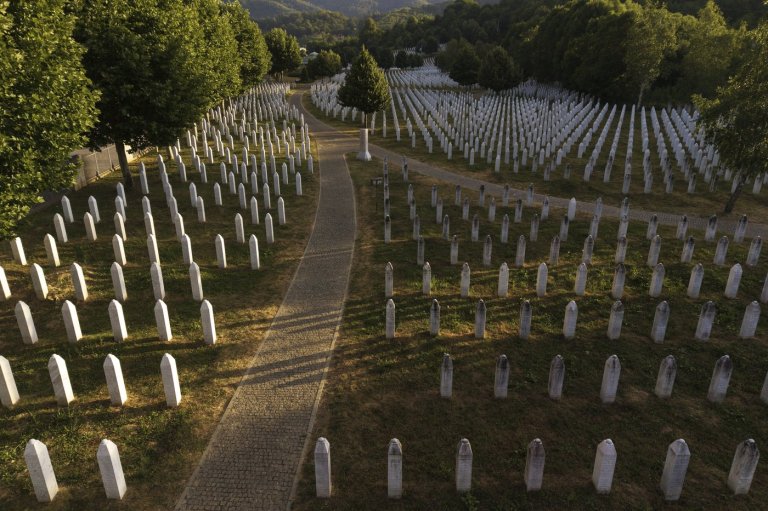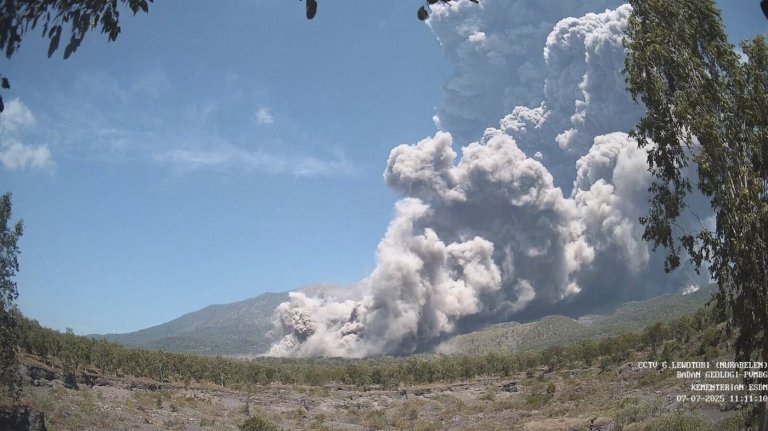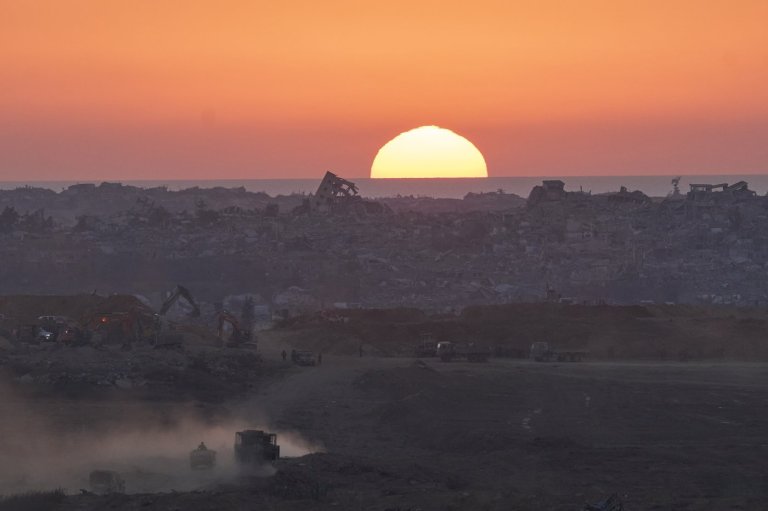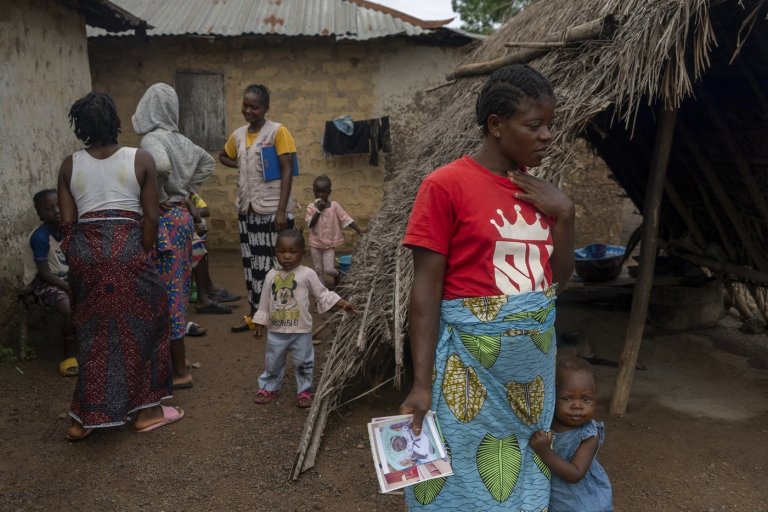AP News in Brief at 11:04 p.m. EST
Millions endure record cold without power; at least 20 dead
OCEAN ISLE BEACH, N.C. (AP) — A winter storm that left millions without power in record-breaking cold weather claimed more lives Tuesday, including three people found dead after a tornado hit a seaside town in North Carolina and four family members who perished in a Houston-area house fire while using a fireplace to stay warm.
The storm that overwhelmed power grids and immobilized the Southern Plains carried heavy snow and freezing rain into New England and the Deep South and left behind painfully low temperatures. Wind-chill warnings extended from Canada into Mexico.
In all, at least 20 deaths were reported. Other causes included car crashes and carbon monoxide poisoning. The weather also threatened to affect the nation’s COVID-19 vaccination effort. President Joe Biden’s administration said delays in vaccine shipments and deliveries were likely.
North Carolina’s Brunswick County had little notice of the dangerous weather, and a tornado warning was not issued until the storm was already on the ground.
The National Weather Service was “very surprised how rapidly this storm intensified … and at the time of night when most people are at home and in bed, it creates a very dangerous situation,” Emergency Services Director Ed Conrow said.
___
Biden optimistic on reopening of elementary schools
MILWAUKEE (AP) — President Joe Biden is promising a majority of elementary schools will be open five days a week by the end of his first 100 days in office, restating his original goal after his administration came under fire when aides said schools would be considered open if they held in-person learning just one day a week.
Biden’s comments, during a CNN town hall in Milwaukee, marked his clearest statement yet on school reopenings. Biden had pledged in December to reopen “the majority of our schools” in his first 100 days but has since faced increasing questions about how he would define and achieve that goal, with school districts operating under a patchwork of different virtual and in-person learning arrangements nationwide.
“I said open a majority of schools in K through eighth grade, because they’re the easiest to open, the most needed to be open in terms of the impact on children and families having to stay home,” Biden said.
He said comments by White House press secretary Jen Psaki earlier this month that one day a week of in-person learning would meet his goal were “a mistake in the communication.”
Asked when the nation would see kindergarten through eighth grades back to in-person learning five days a week, Biden said, “We’ll be close to that at the end of the first 100 days.” He said he expected many schools would push to stay open through the summer, but suggested reopening would take longer for high schools due to a higher risk of contagion among older students.
___
Crippling storm hampers vaccinations as FEMA opens new sites
A paralyzing winter storm wrought havoc with COVID-19 vaccination efforts around the country on Tuesday, forcing the cancellation of appointments and delaying vaccine deliveries just as the federal government rolled out new mass vaccination sites aimed at reaching hard-hit communities.
FEMA opened its first COVID-19 inoculation sites in Los Angeles and Oakland, part of a broader effort by the Biden administration to get shots into arms more quickly and reach minority communities hit hard by the outbreak.
The developments came as the vaccination drive ramps up. The U.S. is administering an average of nearly 1.7 million doses per day, according to the Centers for Disease Control and Prevention.
And the administration said Tuesday it was boosting the amount of vaccine sent to states to 13.5 million doses per week, a 57% increase from when President Joe Biden took office nearly a month ago, as well as doubling to 2 million the weekly doses being sent to pharmacies.
At the same time, coronavirus deaths are down sharply over the past six weeks, and new cases have plummeted.
___
‘A complete bungle’: Texas’ energy pride goes out with cold
AUSTIN, Texas (AP) — Anger over Texas’ power grid failing in the face of a record winter freeze mounted Tuesday as millions of residents in the energy capital of the U.S. remained shivering with no assurances that their electricity and heat — out for 36 hours or longer in many homes — would return soon or stay on once it finally does.
“I know people are angry and frustrated,” said Houston Mayor Sylvester Turner, who woke up to more than 1 million people still without power in his city. “So am I.”
In all, between 2 and 3 million customers in Texas still had no power nearly two full days after historic snowfall and single-digit temperatures created a surge in demand for electricity to warm up homes unaccustomed to such extreme lows, buckling the state’s power grid and causing widespread blackouts. More bad weather, including freezing rain, was expected Tuesday night.
Making matters worse, expectations that the outages would be a shared sacrifice by the state’s 30 million residents quickly gave way to a cold reality, as pockets in some of America’s largest cities, including San Antonio, Dallas and Austin, were left to shoulder the lasting brunt of a catastrophic power failure, and in subfreezing conditions that Texas’ grid operators had known was coming.
The rolling blackouts rolled out in Texas harken back to the 2011 winter storm immediately before that year’s Super Bowl in Arlington, Texas that led federal energy officials to warn the grid manager, the Electric Reliability Council of Texas or ERCOT, that Texas power plants had failed to adequately weatherize facilities to protect against cold weather, the Houston Chronicle is reporting.
___
UN expert fears violence with troops sent to Myanmar city
YANGON, Myanmar (AP) — The U.N. expert on human rights in Myanmar warned of the prospect for major violence as demonstrators gather again Wednesday to protest the military’s seizure of power.
U.N. rapporteur Tom Andrews said he had received reports of soldiers being transported into Yangon, the biggest city, from outlying regions.
“In the past, such troop movements preceded killings, disappearances, and detentions on a mass scale,” he said in a statement issued by his office in Geneva. “I am terrified that given the confluence of these two developments – planned mass protests and troops converging – we could be on the precipice of the military committing even greater crimes against the people of Myanmar.”
More protests were expected Wednesday all over the country despite the possibility of violence by the army and police.
“Let’s march en masse. Let’s show our force against the coup government that has destroyed the future of youth and our country,” Kyi Toe, a spokesman for the National League for Democracy party of ousted leader Aung San Suu Kyi, wrote on his Facebook page late Tuesday.
___
EXPLAINER: Japan begins vaccination drive, but why so late?
TOKYO (AP) — Japan rolls out its COVID-19 vaccination campaign Wednesday after the government gave belated first approval to a shot co-developed by Pfizer Inc. that the U.S. and many other countries started using two months ago.
Some in Japan, where relatively rare side effects from vaccines tend to be played up, are in no hurry to get the shot. That reluctance could prove to be a big problem for the Tokyo Olympics scheduled for this summer after a year’s delay. Vaccinations are considered a key to holding the games.
With domestic vaccine development still in its early stages, import-reliant Japan faces uncertainty in its supply. It’s also unclear if the already-strained Japanese health care system will be able to treat the extra visitors during the games as they juggle local patients and the mass inoculations.
The AP looks at why Japan, the world’s third-biggest economy, is so late in pursuing coronavirus vaccinations.
___
___
Riot lawsuit just part of Trump’s post-impeachment problems
NEW YORK (AP) — Acquitted by the Senate of inciting last month’s U.S. Capitol insurrection, former President Donald Trump faces more fallout from the unrest, including a lawsuit from a congressman Tuesday. But his biggest legal problems might be the ones that go much further back.
In one of what is expected to be many lawsuits over the deadly riot, Democratic U.S. Rep. Bennie Thompson accused Trump of conspiring with far-right extremist groups that were involved in storming the Capitol.
Trump, who made a fiery speech to supporters prior to the riot, could also be hit with criminal charges — though courts, wary of infringing free speech, have set a high bar for prosecutors trying to mount federal incitement cases.
But riot-related consequences aren’t the only thing Trump has to worry about.
With his historic second Senate trial behind him, here’s a look at the legal road ahead for Trump: ___
___
EXPLAINER: Topsy-turvy weather comes from polar vortex
It’s as if the world has been turned upside-down, or at least its weather. You can blame the increasingly familiar polar vortex, which has brought a taste of the Arctic to places where winter often requires no more than a jacket.
Around the North Pole, winter’s ultra-cold air is usually kept bottled up 15 to 30 miles high. That’s the polar vortex, which spins like a whirling top at the top of the planet. But occasionally something slams against the top, sending the cold air escaping from its Arctic home and heading south. It’s been happening more often, and scientists are still not completely sure why, but they suggest it’s a mix of natural random weather and human-caused climate change.
This particular polar vortex breakdown has been a whopper. Meteorologists call it one of the biggest, nastiest and longest-lasting ones they’ve seen, and they’ve been watching since at least the 1950 s. This week’s weather is part of a pattern stretching back to January.
“It’s been a major breakdown,’’ said Jennifer Francis, a climate scientist at the Woodwell Climate Research Center on Cape Cod. “It really is the cause of all of these crazy weather events in the Northern Hemisphere.”
“It’s been unusual for a few weeks now — very, very crazy,” Francis said. “Totally topsy-turvy.”
___
Cardiologist, anti-war activist Bernard Lown dies at 99
BOSTON (AP) — Dr. Bernard Lown, a Massachusetts cardiologist who invented the first reliable heart defibrillator and later co-founded an anti-nuclear war group that was awarded a Nobel Peace Prize, died Tuesday. He was 99.
The Boston Globe reported the Lithuania-born doctor’s health had been declining from congestive heart failure. He died in his Boston-area home.
Lown, who was a professor at Harvard University and a physician at Brigham and Women’s Hospital in Boston, had helped advance cardiac treatment.
He’d been among the first doctors to emphasize the importance of diet and exercise in treating heart disease and introduced the drug Lidocaine as a treatment for arrhythmia, the Globe reports. In 1962, Lown invented the direct-current defibrillator, or cardioverter, which uses electric shocks to get hearts to resume beating.
He was also an outspoken social activist, founding Physicians for Social Responsibility in 1960 and later co-founding International Physicians for the Prevention of Nuclear War in the 1980s, the newspaper reports.
___
Some dinosaur migration was delayed by climate, study shows
Plant-eating dinosaurs probably arrived in the Northern Hemisphere millions of years after their meat-eating cousins, a delay likely caused by climate change, a new study found.
A new way of calculating the dates of dinosaur fossils found in Greenland shows that the plant eaters, called sauropodomorphs, were about 215 million years old, according to a study in Monday’s Proceedings of the National Academy of Sciences. The fossils previously were thought to be as old as 228 million years.
That changes how scientists think about dinosaur migration.
The earliest dinosaurs all seemed to first develop in what’s now South America about 230 million years ago or longer. They then wandered north and all over the globe. The new study suggests not all dinosaurs could migrate at the same time.
So far, scientists haven’t found any example of the earliest plant-eating dinosaur family in the Northern Hemisphere that’s more than 215 million years old. One of the best examples of these is the Plateosaurus, a two-legged 23-foot (7-meter) vegetarian that weighed 8,800 pounds (4,000 kilograms).
Join the Conversation!
Want to share your thoughts, add context, or connect with others in your community? Create a free account to comment on stories, ask questions, and join meaningful discussions on our new site.













Leave a Reply
You must be logged in to post a comment.